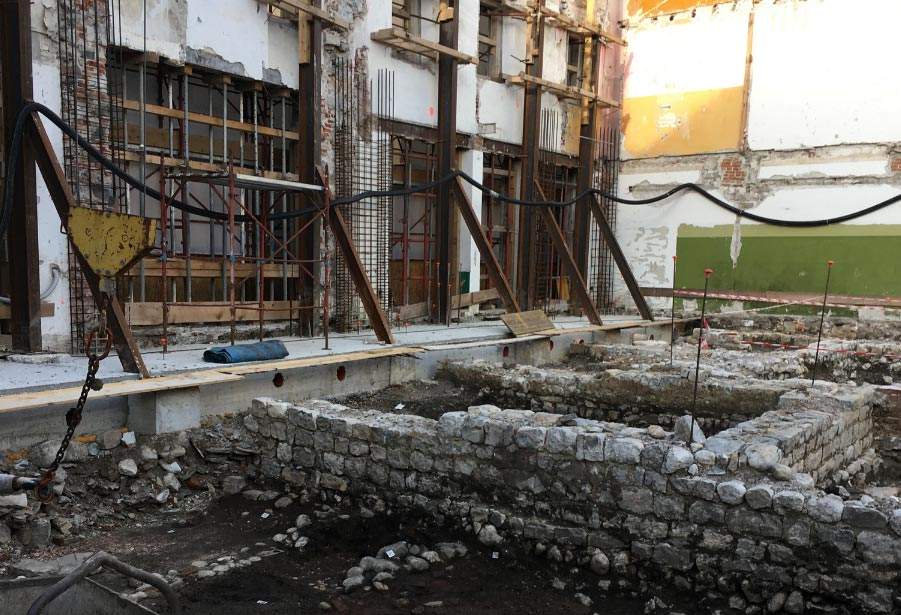Cividale del Friuli, remains of ancient settlement re-emerge from building site
Important archaeological discovery in Cividale del Friuli (Udine), during the renovation of a building at No. 15 Via Adelaide Ristori, in the heart of the historic center of Cividale del Friuli: stratigraphic analyses carried out by the company Archeotest s.r.l., conducted under the scientific direction of archaeological officer Angela Borzacconi of the Soprintendenza Archeologia, Belle Arti e Paesaggio del Friuli Venezia Giulia, led to the discovery of a cross-section of the ancient settlement.
The first part of the excavation work, which was completed at the end of the year, was carried out below the existing building, after the latter was partially demolished and the original architectural structures, which are set on low-medieval masonry, were secured. The research ascertained the presence of a preexisting building dating to the 14th-15th centuries and equipped with numerous underground rooms, used as dumps until the late 16th century, within which table and kitchenware was found. These are deep drainage pits that had already eroded the remains of earlier frequentations, particularly an early medieval burial phase datable between the 6th and 7th centuries advanced.
The excavations also revealed an earlier structurally modest 5th-6th century habitation phase that was set on even older Late Antique contexts, which in turn had reworked structures from the Roman period. It is therefore an articulated stratigraphic sequence, thoroughly investigated to add new information to our knowledge of the city. The decision to invest economic resources in excavation, rather than conservation, is justified by the overriding importance of understanding the sequence of life of urban contexts. Indeed, this is the best mode of valorization in cases where the complexity of the archaeological overlays is such that they do not lend themselves effectively to immediate reading and do not allow for an adequate musealization of the structures unearthed.
In the case of stratified cities such as Cividale del Friuli these archaeological windows are real opportunities for knowledge, to shed light on the settlement dynamics of the city and its transformations over time: the city of Caesar’s implantation, founded on the junction of trade routes (hence the name Forum Iulii), underwent significant enhancement in Late Antiquity, becoming an indispensable defensive stronghold, so much so that it was chosen as the seat of the first of the thirty-five duchies of the Lombard Kingdom in Italy. It maintained its importance in later eras as well, rising to become an important center of patriarchal power. An operation, therefore, that allowed to show the importance of urban archaeology as a means of discovering and making known the articulated living fabric of the cities and in particular of the ancient Forum Iulii, thanks to the stratigraphic analyses conducted in the latest excavations.
The Superintendence of Friuli Venezia Giulia financially supported the work in synergy with the client, the Tilatti company, in compliance with the normal control practice to which the entire historic center, corresponding to the Unesco buffer zone, is subjected (since 2011 the city is part of the serial site The Lombards in Italy. Places of power 568-774 AD), as well as some sensitive areas of the remaining district.
Pictured: traces resurfaced from the excavation.
 |
| Cividale del Friuli, remains of ancient settlement re-emerge from building site |
Warning: the translation into English of the original Italian article was created using automatic tools. We undertake to review all articles, but we do not guarantee the total absence of inaccuracies in the translation due to the program. You can find the original by clicking on the ITA button. If you find any mistake,please contact us.





























